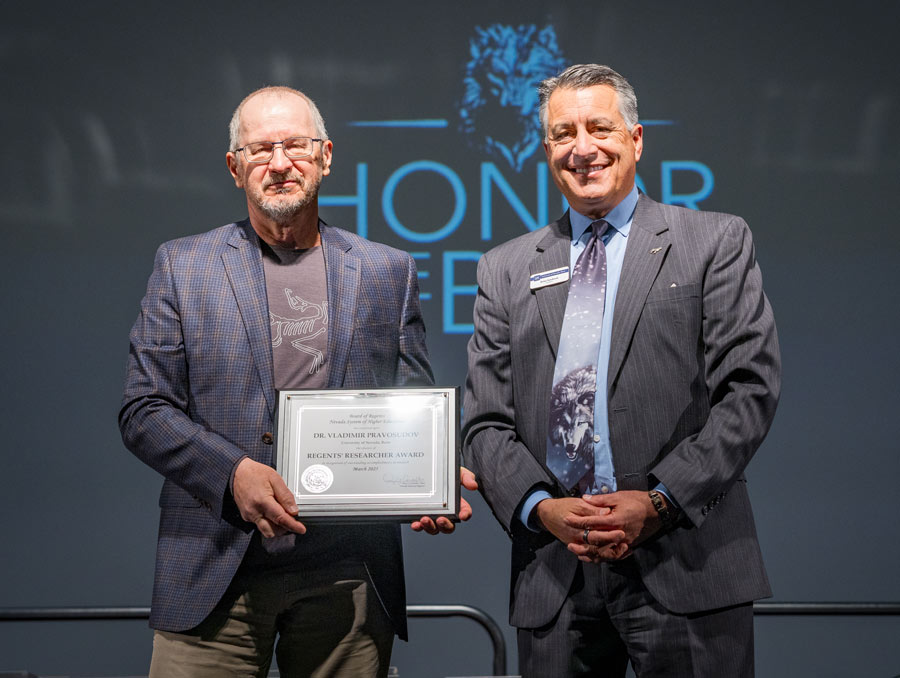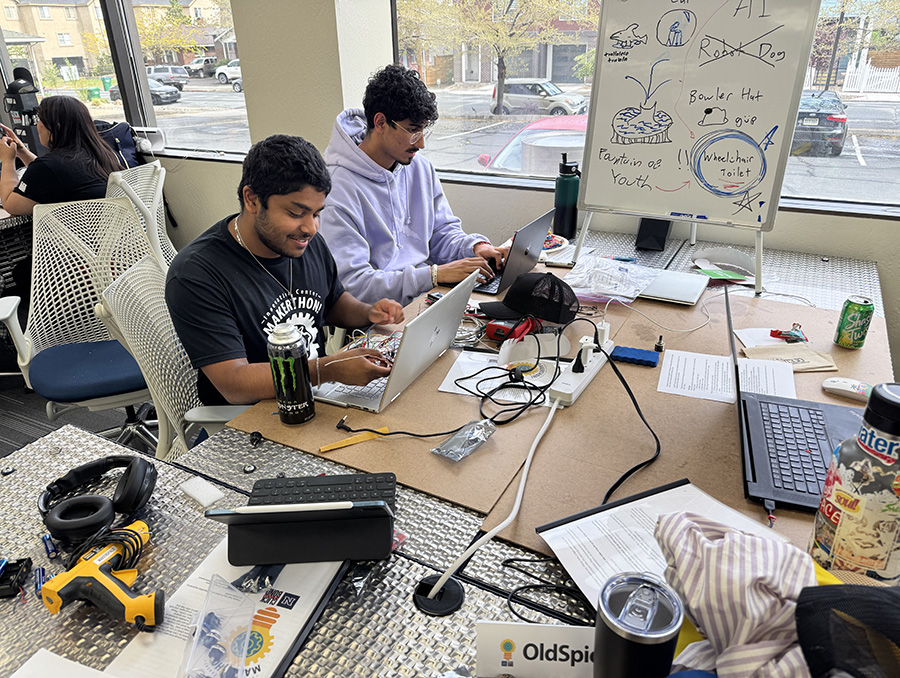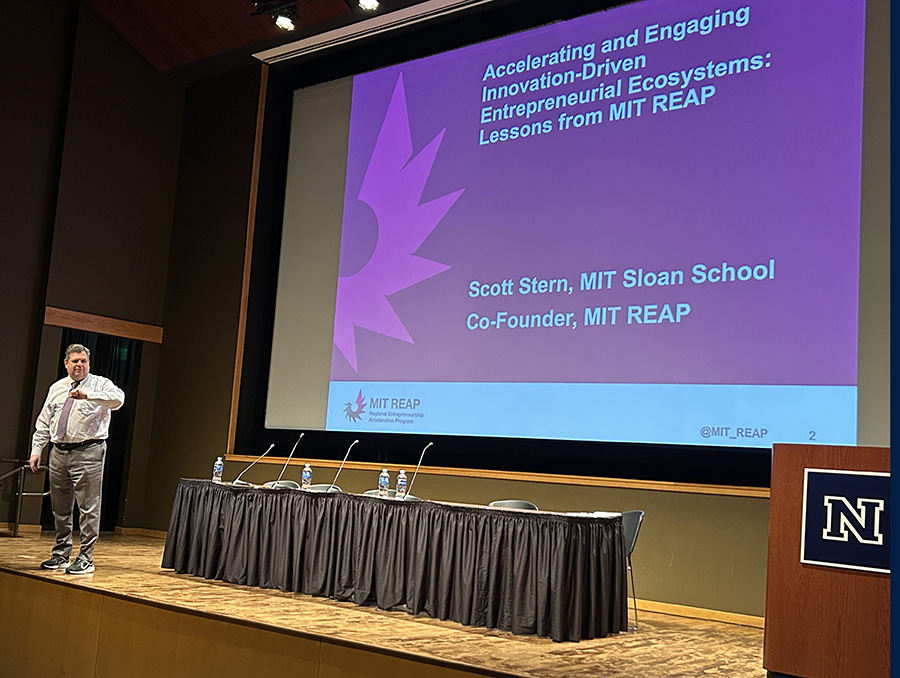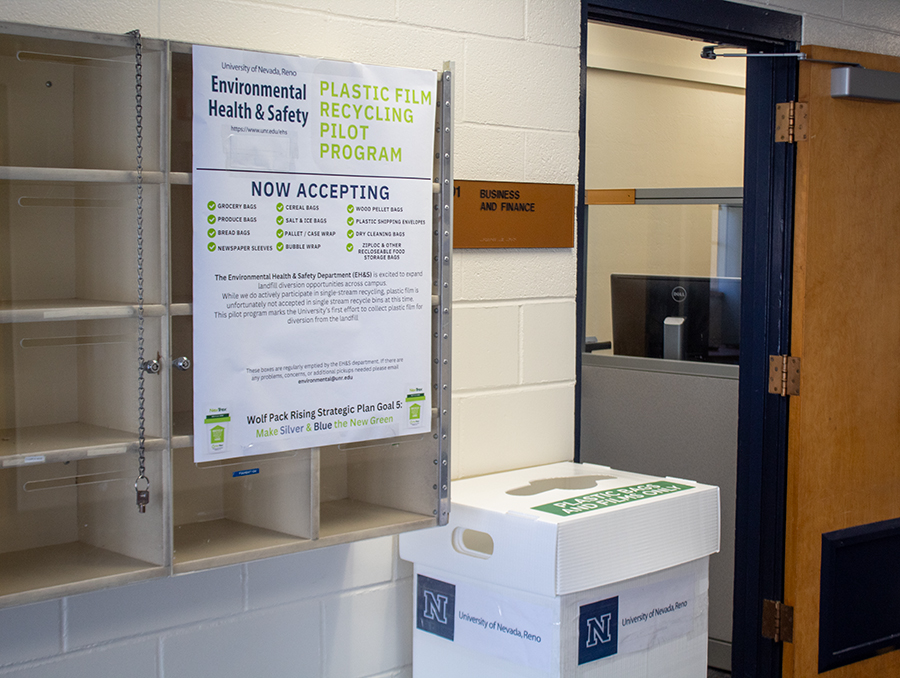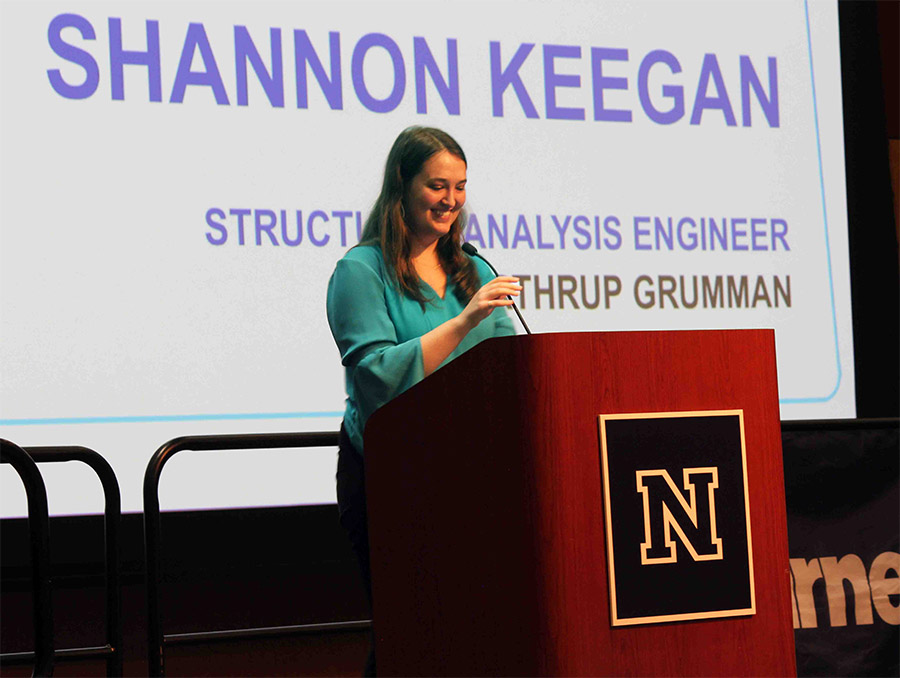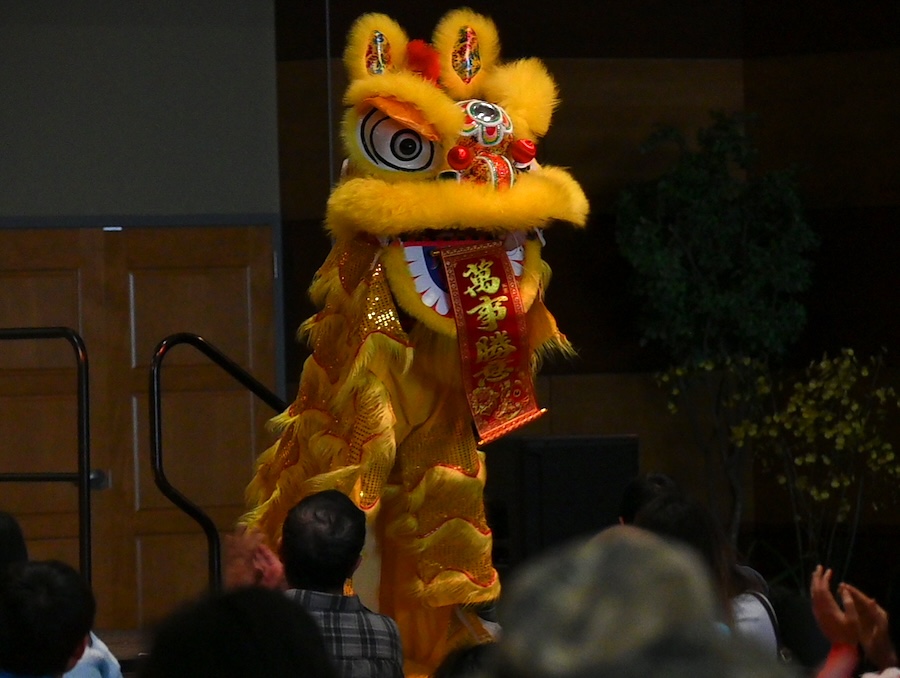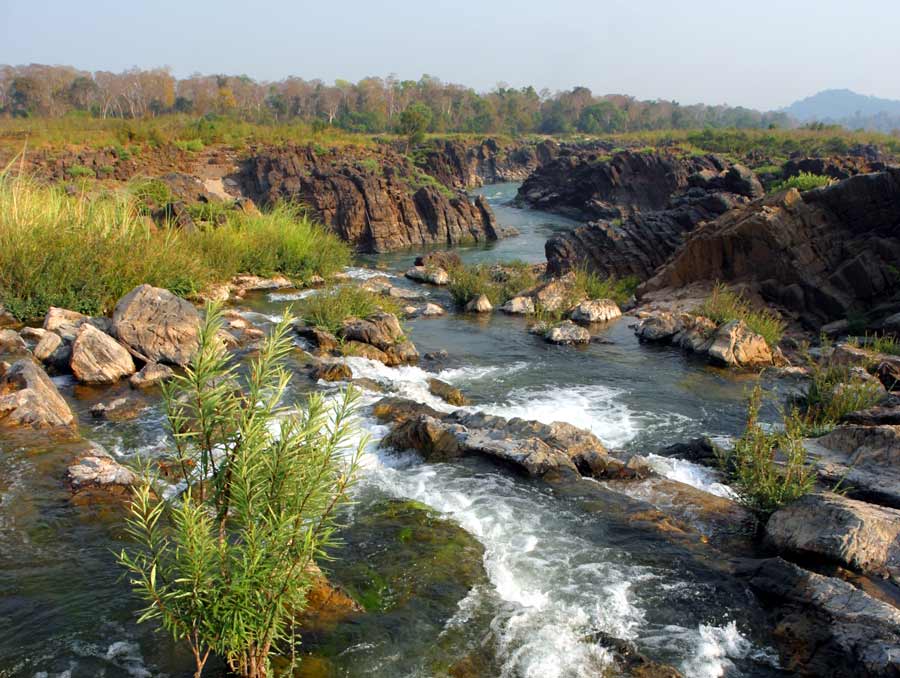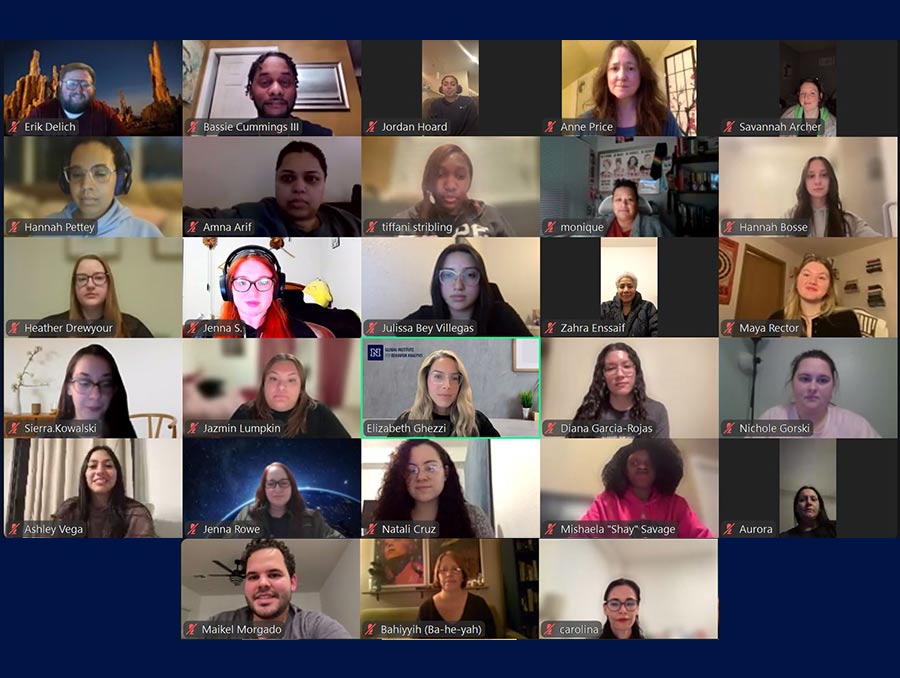Foundation Professor and Trevor J. McMinn Endowed Research Professor in Science Vladimir Pravosudov has been named the Regents’ Outstanding Researcher in the Nevada System of Higher Education in 2025. Pravosudov will have worked at the University of Nevada, Reno for 20 years this July and is a renowned behavioral ecologist and ornithologist who studies cognition in food-caching mountain chickadees, a charismatic resident bird that lives in the mountains of Northern Nevada.
“We’re interested in the evolution of cognition and memory and how they fit into the entire life history of the species,” Pravosudov said. “Understanding natural history is critical for such studies.”
Chickadees are small birds that live in alpine regions, including around Lake Tahoe. They have distinctive calls that sound like the word “cheeseburger,” and they survive harsh winters by caching tens of thousands of food items, mostly seeds, every Fall and seeking out and eating these caches during the winter. They remember most of the locations where they stored the seeds and return to that spot when they’re hungry for a seed snack.
From the lab to the field
Pravosudov’s extensive career studying biology of food-caching chickadees has led to many fascinating insights. The broader interest in chickadee cognition has been the same, but the avenues for studying cognition have evolved over time. For the first five years of his time at the University, Pravosudov worked primarily indoors. His wet lab work, studying wild birds’ brains and physiology, laid the groundwork for his work in the field.
“It allowed us to do what we do now,” Pravosudov said.
Now, his methods include following a bird for its entire lifespan and studying its memory using cleverly designed feeders. This fieldwork allows for a more realistic understanding of the birds’ biology that is often not found in a wet lab. His expertise on mountain chickadees, from their basic physiology to their neurobiology, and from their ecology to their evolution, has made Pravosudov a world-renowned expert in avian and animal cognition.
“I attribute my success to being persistent and following a very similar kind of general topic such as cognition and attacking it from multiple angles simultaneously,” he said.
That integration can sometimes lead to inconsistencies in the published literature. Oftentimes, data reported from a wet lab are very different from data coming from a natural system and the two data sources can contradict each other.
“That's why I think connecting the lab work with the work with wild animals and understanding their natural history is very important,” Pravosudov said.
Though Pravosudov’s research findings have been largely consistent between the lab work and the fieldwork, he points out that there is significant value in publishing negative results, or research which doesn’t result in findings that one would expect or doesn’t align with prior research findings. By publishing negative results of a given experiment, other researchers can modify that experiment, or avoid it altogether, and seek out different directions and methods. Pravosudov has published negative results in the past, but it’s harder to publish negative results in high-profile journals, which is a strong indicator of success in academia and tied to career progression.
“The whole system doesn’t favor publishing negative results…which is a bad thing for science,” Pravosudov said. “I think it’s our duty.”
Engaging the public with local species
Pravosudov’s research has generated significant public interest, which he believes arises from people’s interest in cognition and bias about our own cognitive abilities exceeding those of animals. He also noted that people love birds, but ignore, fear or even try to exterminate less charismatic animals like spiders. Overall, Pravosudov enjoys sharing his research with the public.
“I’m happy to see this because I think a big part of science is to communicate these findings to the general audience,” he said.
Interacting with the public, through media interviews or free local talks, has enabled Pravosudov to set the record straight in a few instances. One example that generated particular engagement was his research lab’s finding that feeding the chickadees, a popular outdoor winter activity for locals and tourists alike in the region, does not impact their populations in a positive or negative way. The attention given to the research also allowed Pravosudov to share what types of seeds are best to feed the chickadees (black oil sunflower seeds are a great option, and the chickadees love pine nuts), allowing him to turn an entertaining activity into a learning opportunity. Another instance was when the Tahoe Quarterly Magazine asked Pravosudov which is the smartest animal in the Tahoe basin. Despite the chickadees’ remarkable memories and their charismatic nature, Pravosudov said it was probably the raven, followed by the Norway rats.
“People don’t want to necessarily hear that, because rats are considered pests, but they’re remarkably intelligent,” Pravosudov said.
Reflecting on two decades of success
For Pravosudov, one of the major benefits of working at the University of Nevada, Reno is his proximity to his field sites.
“My philosophy in science was always to try to find study locations close by, because I can be working year round, which allows better understanding of biology of our target species,” he said.
For researchers whose field sites are in different counties, states, countries or continents, access to field sites is extremely time-consuming and there are fewer opportunities to study the system year-round.
Pravosudov added that the Department of Biology at the University is “excellent.”
“It’s very supportive, and my colleagues are very good organismal biologists,” he said. “The College has been very supportive of me. The University was able to cover a lot of needs.”
He has previously been named a Foundation Professor and received the Trevor J. McMinn Endowed Research Professorship in Science, both awards which provide financial support, and Pravosudov added how important that has been to his work. To access his field sites, particularly in the winter, he needs specialized equipment and maintaining that equipment can be costly. But for Pravosudov, it’s all worth it so he can learn more about the natural world.
“Learning is the most rewarding thing,” Pravosudov said. “I’ve always loved it, and that’s why I think this is the best job in the world.”
Conducting research allows Pravosudov to learn, but it also requires creativity. Particularly in studying cognition, careful study design is crucial. Pravosudov can’t ask the birds if they remember where they cached their seeds, so he had to develop a way to study their memory, which has been very effective.
“Creativity is supremely important,” he said.
Pravosudov has collected data on these birds for over a decade, and long-term studies like his are crucial for understanding change in an ecosystem, which is already prevalent in the region due to climate change. He hopes to secure research funding that will enable continuous studies of these birds. Pravosudov’s former graduate student Ben Sonnenberg likened the chickadees to canaries in a coal mine in an article about how chickadees are coping with extreme variability in snowpack in the region attributed to climate change.
“Those long-term studies are the most valuable studies in biology that one can imagine,” Pravosudov said.
Pravosudov is excited to continue learning about this charming bird and what these birds can teach us about cognition and the brain. He’s looking into the microbiomes of the birds, understanding their communication and sexual selection associated with cognition and continuing the long-term studies of this bird system.
